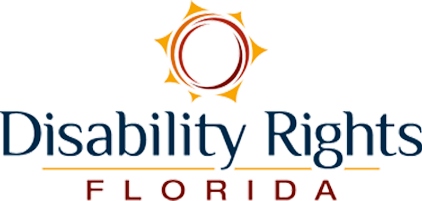Disability Rights Florida Blog
Why is this important?
At first, it may not seem obvious why disability and reproductive rights would be interconnected. However, this intersection is extremely relevant and important to understand for quite a few reasons. In the wake of the Supreme Court’s decision overturning Roe v. Wade, it is even more important to keep these topics at the forefront of our minds.
Most people will require various forms of reproductive health care throughout their lives. Reproductive health care encompasses a wide variety of services such as prenatal and postnatal care, routine gynecological screenings, contraception, mammograms, family planning, sex education, screenings for STIs, and violence prevention. However, the experiences of people with disabilities often vary greatly from people without disabilities when accessing this care. This is largely a result of ableism (discrimination against people with disabilities), misinformation, and systemic inequities. Some marginalized groups face even larger rates of discrimination, such as disabled women of color and LGBTQ+ people with disabilities. Reproductive health is discussed as a universal right, yet the topic of disability is often absent from the conversation. To ensure that safe, inclusive health care is available to everyone, disability and reproductive rights must be considered through an intersectional lens.
Consider these disparities:
- People with disabilities are 3 times as likely to experience rape or sexual assault than people without disabilities
- Women with disabilities have much higher rates of pregnancy complications
- Women with disabilities are less likely to receive pap smears and mammograms
- 1 in 3 adults with disabilities have an unmet healthcare need because of cost in the past year
- Women with disabilities are more likely to be forced or coerced into sterilization, which is a procedure that prevents an individual from being able to sexually reproduce
Common Barriers
People with disabilities also face numerous barriers to accessing reproductive health care. Some of the most common include:
- Physical barriers- Health care facilities can be inaccessible to individuals with physical disabilities. For example, exam tables may be non-adjustable and therefore inaccessible to someone who uses a wheelchair.
- Communication barriers- Necessary communication methods may be inadequate or difficult to access. For example, Braille or large-print text may be unavailable for an individual who has low vision.
- Information barriers- Information and educational materials may be non-inclusive or confusing. For example, complicated clinic forms may be inaccessible to an individual with an intellectual disability who needs more time and support to make an informed decision about their health.
- Economic barriers- Obtaining care can be a financial burden for some individuals. For example, someone with a disability who is not covered by Medicaid may be responsible for expensive out-of-pocket costs to receive reproductive health care.
- Training barriers- Health care providers may lack the necessary training to provide equitable care to their patients with disabilities, which perpetuates biases. For example, a provider may choose not to test their patient for STIs under the false assumption that they are not sexually active.

Image Source: Feminist Alliance For Rights
How am I protected?
There are a few primary laws that protect people with disabilities when accessing reproductive health care: The Americans with Disabilities Act (ADA), Section 504 of the Rehabilitation Act, and the Patient Protection and Affordable Care Act (ACA).
The ADA prohibits discrimination against people with disabilities across all areas of public life. Title II- State and Local Government Activities and Title III- Public Accommodations are the most relevant sections of the ADA to reproductive health care. Under these sections, both public and private health care facilities are required to follow the ADA.
Section 504 of the Rehabilitation Act also protects against disability-based discrimination, and it applies to any agency or organization that receives federal funding. This includes hospitals that take Medicaid and Medicare.
The ACA improves health care access by expanding access to insurance coverage, making improvements to Home and Community-Based Services (HCBS) through Medicaid, eliminating insurance discrimination based on pre-existing conditions, and improving accessibility requirements.

Image Source: Heller Brandeis Edu
What should I do if I have been discriminated against?
Unfortunately, discrimination still occurs against people with disabilities when accessing reproductive health care despite these legal protections. The barriers described above are just some of the most common forms of discrimination. For these reasons, it is important to be aware of your rights.
If you feel you have been discriminated against, know that you can contact Disability Rights Florida for more information, resources, and advocacy services. If you live outside of Florida, you can use the following link to find the contact information for your state’s designated Protection & Advocacy agency: https://www.ndrn.org/about/ndrn-member-agencies/
Access to safe, inclusive, and equitable reproductive health care is a human right.
Resources to learn more:
- Resource from the National Center for Parents with Disabilities on access to reproductive health care
- Article from the Center for American Progress on reproductive justice for disabled women
- Fact Sheet from the Universal Periodic Review on the rights of women and girls with disabilities
References
 Jamie Butler is a Public Policy Intern who joined DRF in January 2022. She attends Florida State University and will receive her Master’s in Social Work and Master’s in Public Administration at the end of the summer.
Jamie Butler is a Public Policy Intern who joined DRF in January 2022. She attends Florida State University and will receive her Master’s in Social Work and Master’s in Public Administration at the end of the summer.
Leave Us Your Comments
Please do not leave requests for assistance in the comments. Blog comments are not monitored by intake staff and your request may not be seen. Visit our Online Intake Page to request our services.
Commenting is not available in this channel entry.
Comments